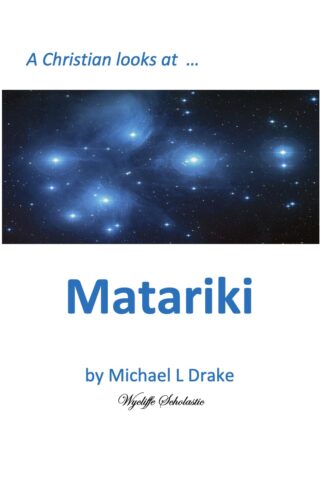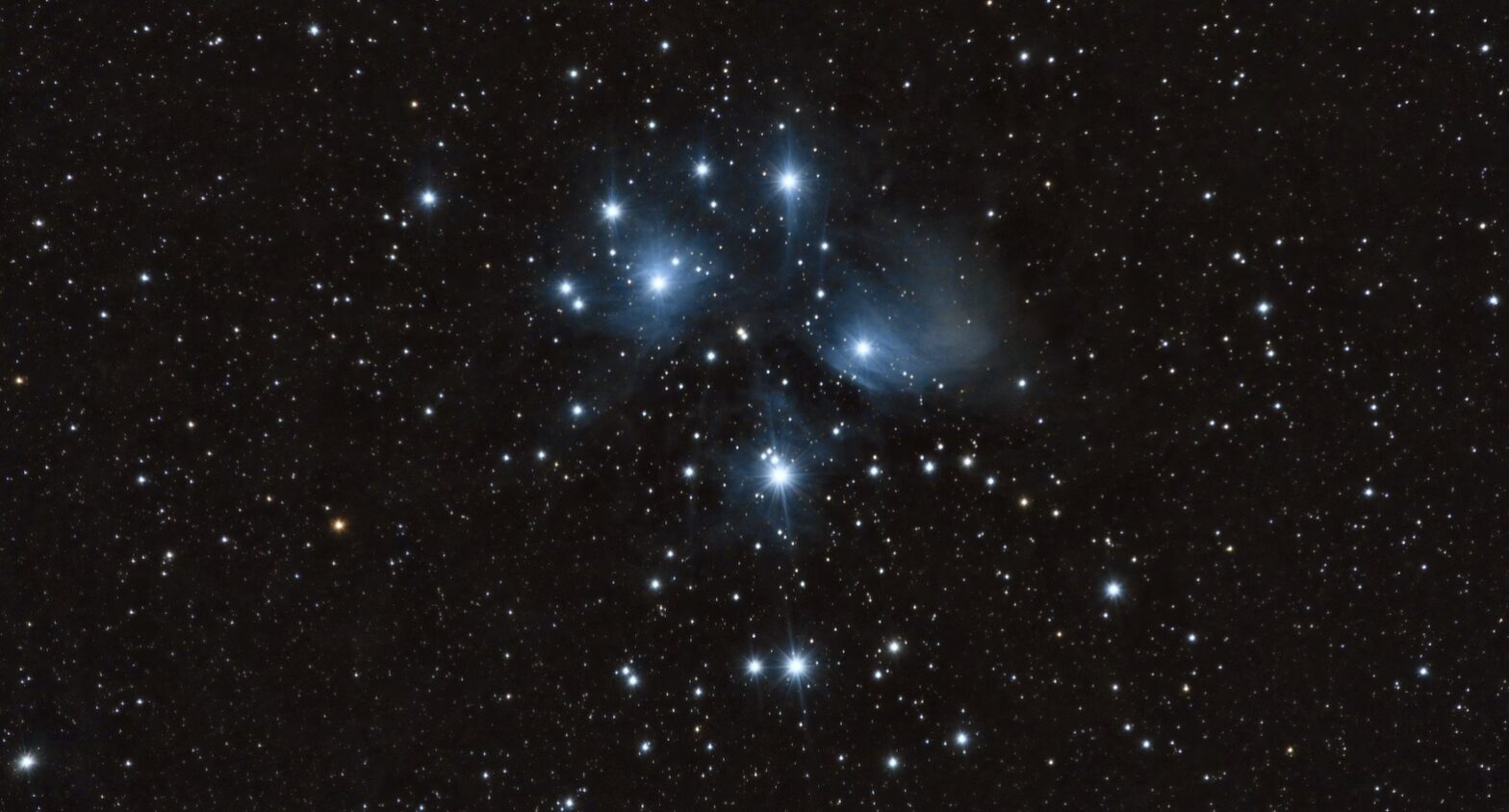It dawned on me, as the tohunga whakairo (Maori carver) led a group of excited schoolchildren and parents in a karakia (prayer), that this was not an ordinary school holiday activity. Before we got to design and make our model waka, we were asked to listen in as he gave thanks to each of the seven stars of Matariki (known as Pleiades in the West, 昴 in China, Subaru in Japan). It’s 2023, and we were witnessing state-approved worship of a different kind!
For those of us with Chinese heritage, this kind of concern isn’t new of course. After all, in many Asian families, Lunar New Year celebrations carry with it all kinds of superstitions and religious rituals. The wise Christian must strike a balance between the commands to flee from idolatry and separate from false worship, to honouring the themes and truths we share in common with our families (such as giving thanks for the past and our people, celebrating the present, expressing hope for the future), while observing how every ritual and tradition is a window into deeper desires and longings that we all share (for example, security, prosperity, and community) and using them as gospel opportunities.

Source: Te Papa, Wellington
In light of this, here are three resources (or “wayfinders”) I’ve found helpful this week in thinking about Matariki in a redemptive way.
1. “Matariki Resource” (Laidlaw College)
First up is this beautifully-produced video presented by Bradford Haami (Ngāti Awa, Laidlaw College). After explaining the origin and meanings of key aspects of Matariki celebrations (including the Whāngai hau ritual – essentially a food offering made to Matariki as a goddess), he gently and graciously shares a brief biblical framework for Christians to participate in this celebration in a meaningful way “without diluting our own Christianity”.
The heavenly bodies were created by God to declare his handiwork (Ps 19:1), not as deities for people to bow down before. Ultimately, we see in the New Testament how it is a star that points the wise men to the King of Kings (Matthew 2). He concludes:
“All of us can do this: we can gather together, we can share kai together, we can praise the Creator of the heavens and the stars together. Why don’t we let the stars point us to the King of Kings?”
2. “A Christian looks at Matariki” (Michael Drake)

This recently published 23-page booklet is a short, gospel-centred look at Matariki. Michael Drake (Ngai Tahu) has done a great job at explaining the history of how Matariki became our country’s newest public holiday, challenges us to think biblically and graciously about the festival and what is explicitly taught about it, and how we might use or Christian freedom to celebrate the Māori New Year in a biblical way.
Particularly helpful for me were Michael’s observations that for over 200 years, there have been Christian Māori who have acknowledged Matariki in a genuinely Christian manner, and that there is not just one Māori view on Matariki (just as there isn’t one Chinese view on Chinese New Year!). Drawing from the lessons of 1 Corinthians 8, Romans 14 and elsewhere, he summarises a balanced, biblical approach:
“…while we have freedom to celebrate any day in ways that make it truly special to the Lord, we are not free to celebrate it in any way that is not Christ honouring or faithful to the Bible.”
Michael Drake, A Christian looks at Matariki (2023), 12.
You can read an online PDF version here (https://bit.ly/matarikibook), or visit Michael’s website for e-book and A5 booklet printable options. He’s generously offered his book under a Creative Commons licence. Ngā mihi Mihaere!
3. Worship songs and hymns celebrating God as Creator
Perhaps one more suggestion for celebrating Matariki this year would be to make the most of the worship songs we have that praise God as the Creator of all things, including the stars. After looking at Genesis 1-2 last year for our church’s sermon series, I gained a new appreciation for how the Bible’s creation story was originally crafted as a poetic polemic against other ancient Near Eastern creation accounts (for more on this, see Against the Gods by John Currid). For example, unlike myths that describe the creation of stars in great detail, there is intentionally very little focus on them in Genesis 1:16 besides one throwaway phrase: “and the stars”. Instead, the repetition and focus throughout Genesis 1-2:3 is on a great God who creates heaven and earth through his powerful word (and it was very good)!
We may not know the exact tunes and meters of Genesis 1-2, but there are plenty of singable options when it comes to poetic polemics today. In English, songs like Indescribable by Laura Story, How Great Thou Art and All Creatures of Our God and King are great ways to reframe the narrative of God as our Creator King in our hearts. Yet even the Māori translation of our national anthem honours the God of the Bible explicitly, and could be a suitable song to sing this Friday:
E Ihowa Atua,
(Oh YHWH God)
O ngā iwi mātou rā,
(Of nations and of us too)
Āta whakarongona;
(Listen to us)
Me aroha noa
(Cherish us)
Kia hua ko te pai;
(Let goodness flourish)
Kia tau tō atawhai;
(May your blessings flow)
Manaakitia mai
(Defend)
Aotearoa
If you’re interested, here are some other resources compiled by Jade Hohaia (Wilbeforce Foundation) – Te Rongopai & Matariki. But perhaps this Matariki, the best antidote to celebrating tales of a weather god Tāwhirimātea tearing out eyes and casting them into the skies is to let the stars point us to the King of Kings, use our freedom to celebrate Matariki in Christ, and soak ourselves in the singable truths of Scripture.
“Stand up and praise the LORD your God, who is from everlasting to everlasting: Blessed be your glorious name, and may it be exalted above all blessing and praise. You alone are the LORD. You made the heavens, even the highest heavens, and all their starry host, the earth and all that is on it, the seas and all that is in them. You give life to everything, and the multitudes of heaven worship you.”
Nehemiah 9:5-6





Thankyou, it is great to find clarity on Matariki from a Christian perspective.
You’re welcome Christine!